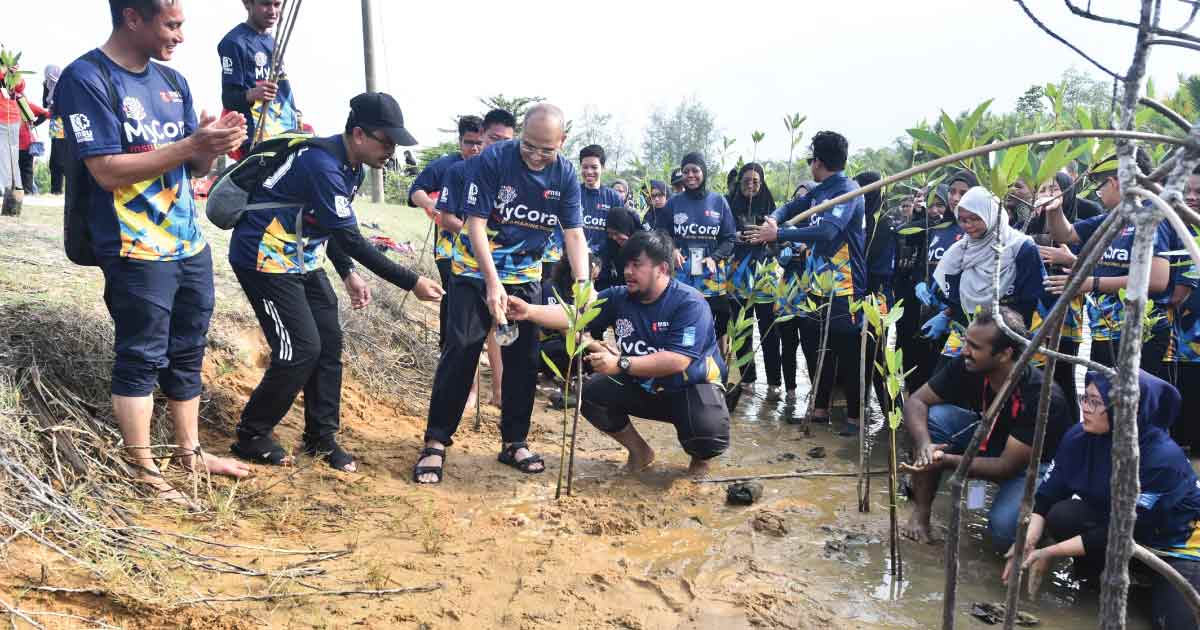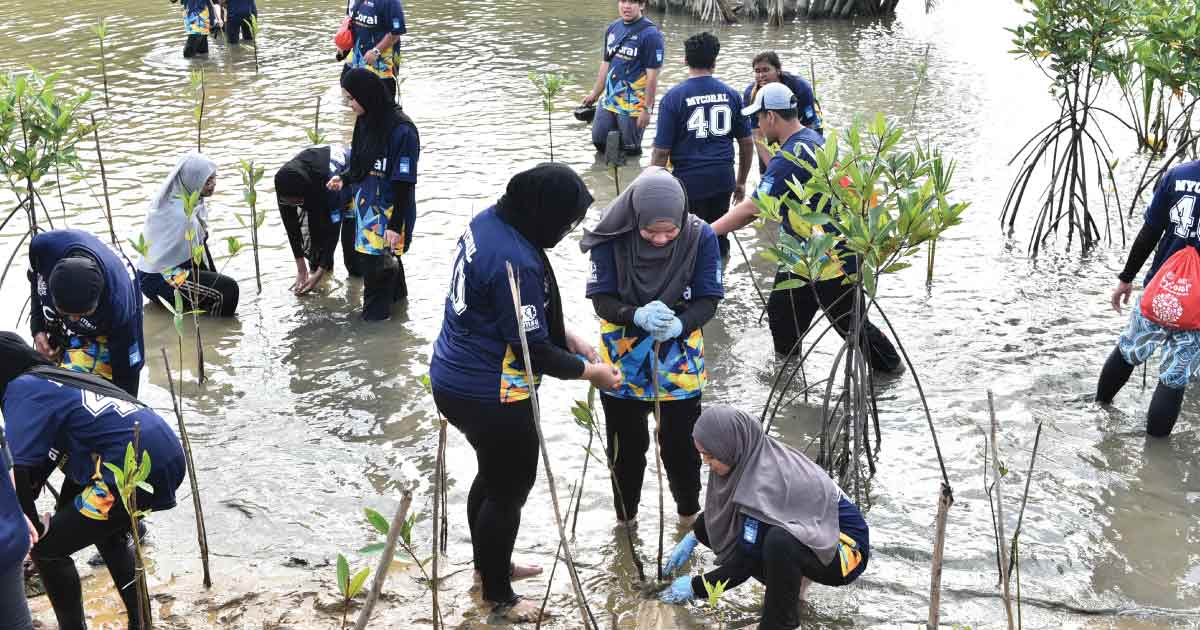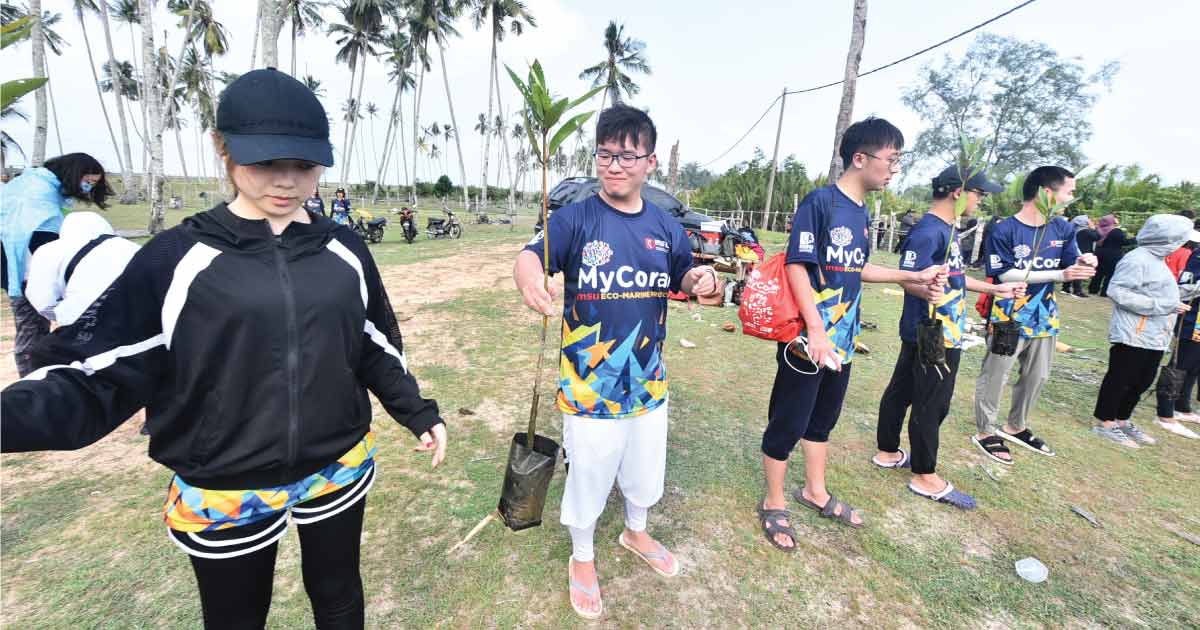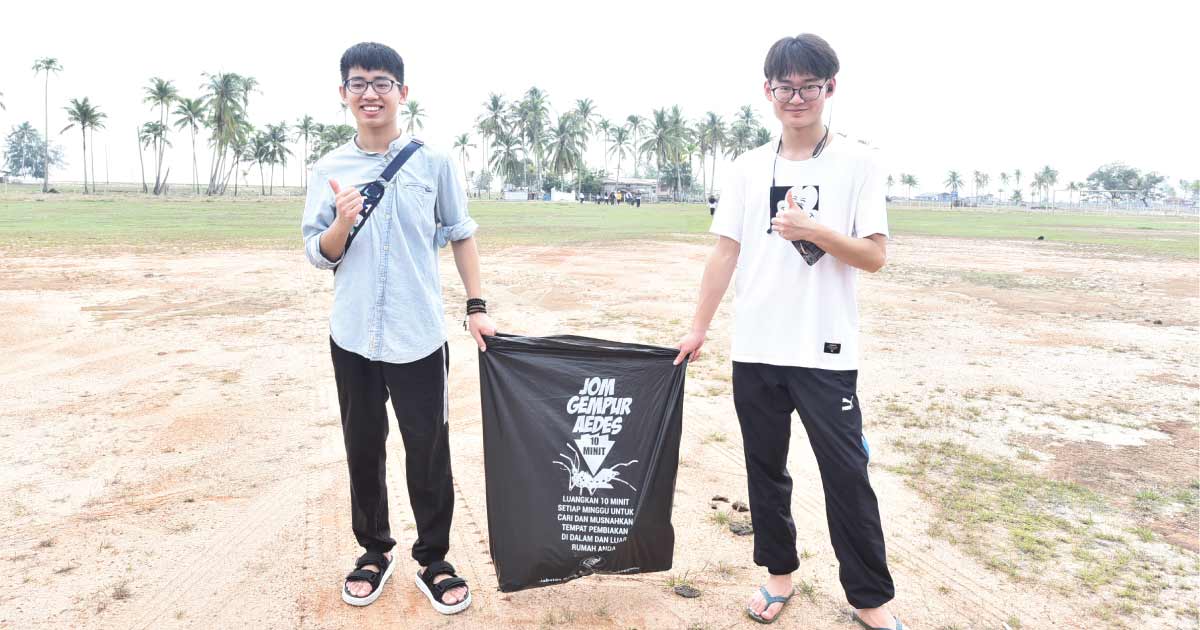Management and Science University (MSU) is shaping the future of conservation in the idyllic Perhentian Archipelago. The university recently revisited its MyCoral series on the fourth edition of the coral propagation programme in the Malaysian state of Terengganu.
Beneath the waves, MSU is helping conservation strategies by deploying and maintaining coral propagators in its effort to raise world coral population this side of the globe and support United Nations Sustainable Development Goals (UNSDG). MSUrians are playing up their holistic skills for the environmental cause; creating eco-awareness and raising eco-friendliness in community engagement and environmental sustainability activities.
 Combatting coastline-choking litter
Combatting coastline-choking litter

Arriving at the fishermen resort in Terengganu’s Rhu 10, students and staff from MSU International Medical School (IMS) wasted no time to mobilize a health and hygiene awareness clinic for the villagers of Kampung Mangkuk on the MSU ECHO programme.
ECHO or Embracing Community Health Outreach is an MSU initiative at well-rounded social development encompassing community healthcare and environmental sustainability.
It was a great opportunity to gain new knowledge and build skills as the student doctors received real-time on-site mentoring from none other than their own super seniors, MSU alumni members Dr Mohd Arham Mohd Noor, Dr Imran Khan Jallaldeen, and Dr Nurul Ain Jailani.
Next on the MyCoral 4.0 itinerary was a turtle conservation talk by the World Wildlife Fund (WWF).
Ancient mariners for more than 100 million years, sea turtles fill a vital role in balancing marine habitats. Seven species of marine turtles roam the world’s oceans, and five are central to WWF’s work: the green, the hawksbill, the loggerhead, the leatherback, and the olive ridley. Nearly all sea turtle species are classified as endangered. Their proliferation is affected by climate change, which affects sand temperature and consequently affects hatchling gender. Come time to lay their eggs, female sea turtles would find their way to the beach where they were born.

Extinction of sea turtles will cause declines in all the marine species that depend on healthy coral reefs and seagrass beds to survive, in time depleting the stock of species that we depend on for food. Besides turtle population monitoring, turtle conservation goals include protecting nesting beaches with regulations and public education, as well as minimizing pollutant dumping into the seas. A visit to WWF’s turtle hatchery expanded knowledge in marine biology and exposure to marine ecosystem conservation.
Day 3 on the MSU MyCoral 4.0 programme began with a talk and workshop by Dorken Reef Resources on water safety and coral propagation techniques.
The group then departed to Geluk Island, where MSU President, Professor Tan Sri Dato’ Wira Dr Mohd Shukri Ab Yajid, launched MyCoral 4.0 and adopted a coral propagator.
Every year since 2016 when the MyCoral series was introduced, ten custom propagator frames are lowered under the sea. This year, the number was increased to twelve, with six being of a new design.
Of the extra oxygen produced by the environment, only thirty percent is produced by photosynthesis; the rest is by the oceans, being 70 percent of the planet. Ocean-produced extra oxygen is provided by phytoplanktons, seaweed, algae, and coral reefs. When sea temperature began to rise, we began losing corals to bleaching. The world has already lost a quarter of its reefs.
Though corals make up less than one percent of the oceans’ bottom, they provide a staggering 25-40 percent of our food. Living coral reefs help break the storm waves, the surges, and the hurricanes; allowing us to live along the coasts we love. Without those coral reefs being alive and growing, we will not be able to breathe, eat, live by the coast, or prosper.
Among the fast-growing coral species is the Staghorn, which is physically fragile yet reproductively robust. Also called branching corals, a one-inch piece can grow ten more inches in six months to a year. From seven months, starter Staghorn corals start forming a habitat for the fishes; a functioning ecosystem in just one year.
MyCoral 4.0 saw the adoption of a new coral propagation technique called micro-fragmentation, which facilitates even more rapid growth at 25 to 40 times the normal rate. Another new introduction joining the stable of Agrophora and Staghorn or Acropora cervicornis species used as starters in past editions of MSU MyCoral was the Orbicella faveolata.
A mangrove conservation programme organized by MSU College Terengganu was also launched by the MSU President later in the day.
Mangrove conservation and restoration offer multiple benefits for one solution to climate change. Mangrove soil is a highly effective carbon sink able to sequester vast amounts of carbon. Mangroves support a rich biodiversity, providing valuable nourishment and habitat to our seafood supply. They make a prolific ecosystem between land and sea; green guardians offering a natural shield against coastal erosion. Their declining rate of three to five times quicker than the world’s forests means serious ecological and socio-economic impacts. The 26th of July marks the International Day for the Conservation of the Mangrove Ecosystem.
Joining the MSUrians on their environmental expedition, gaining new knowledge and community exposure were students from China on MSU’s Global Mobility Programme (GMP).






























































